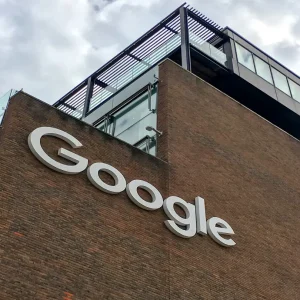
Google has reportedly founded a dedicated blockchain unit to look at potential uses of the technology. Big Tech has thus far been lukewarm on the potential of blockchain, but this move could indicate that this is about to change, with the advent of Web3 and the metaverse forcing the industry’s biggest names to take a closer look at distributed systems.

The new unit will sit within Google’s ‘labs’ division, home to its virtual and augmented reality projects, and be headed up by engineering vice president Shivakumar Venkataraman, according to an internal email seen by Bloomberg. Google declined to comment.
This new division is likely to represent Google’s biggest commitment to the technology yet, and experts told Tech Monitor it reflects the growing opportunity blockchain presents.
Google blockchain unit: why now?
So far Google’s forays into blockchain have amounted to little more than a handful of services available to customers using its Google Cloud Platform. “It’s notable [Google] is now setting up a dedicated team with a senior executive,” says Lory Kehoe, adjunct associate professor in technology trends at Trinity College Dublin. “This means it has been made a priority, and they think the time is right to look at this more closely.”
Funding for blockchain-related projects is at an all-time high. Venture capital funding for blockchain and crypto companies reached $32.8bn in 2021, according to a report on the sector from Galaxy Digital, and big businesses are also taking an interest: last year the world’s 100 biggest public companies, several of which are Google Cloud clients, invested $1.91bn in blockchain, compared to just over $500m in 2020.
With this in mind, it is no surprise Google is stepping up its blockchain activities, Kehoe argues. "Companies like Google are no fools," he says. "They'll be talking to VCs all the time and seeing where the opportunities are, and this is a big one."
Blockchain is central to web3, the idea that the next era of the internet will be built on decentralised technologies. This promises to give users more control of their data, potentially reducing the importance of 'gatekeeper' companies such as Google. "Google is probably worried with the development of web3 and the implications across its advertising and storage business, as well as how this will impact the development of the metaverse and reduce Google’s influence on digital ecosystems," says Christophe Uzureau, research vice president at Gartner.
What services will Google's blockchain unit develop?
For Google, building "connections between its existing solutions and decentralisation technologies such as blockchain is becoming more urgent," Uzureau says. It recently recruited Arnold Goldberg from PayPal to head its payment divisions, who said on his appointment that the company "pays a lot of attention" to crypto.
Uzureau adds that Google will have watched the growth of Cash App, a payment service owned by Block which handles crypto and traditional fiat currency transactions for 70 million users, with interest. "Cash App’s customer acquisition benefited from providing cryptocurrency custody, trading and payment services," he says. "Google already has a partnership with Coinbase and BitPay to enable the issuance of digital cards for use with Google Pay in order to enable payments in Fiat but funded via cryptocurrencies."
Payments are likely to be an early focus for the unit, Kehoe predicts. "The great promise of blockchain technology is [moving tokens] from Google customer A to Google customer B on a cheaper, better, faster path, without the need for going through multiple intermediaries and paying those intermediaries fees," he explains. "I would expect to see some new applications, and some figuring out of how we do stuff we're doing today better, using this technology."
Big Tech and blockchain: can it work?
With business models that are built largely on centralising control of online platforms and services, blockchain is not an obvious fit for Big Tech platforms such as Google or Amazon, though both Facebook and Twitter have invested heavily in the technology.
Kehoe says the arrival of Google as a potentially big player on the blockchain scene will not be welcomed across the community, but says its presence will confer some benefits. "[Google] can bring credibility, scale and users," he says. "It's likely to increase adoption, and these are all big plus points.
"At the same time there are a lot purists out there who believe in the decentralised world, which means Google needs to put a new narrative out there," he adds. "It can't just keep doing the same thing it's currently doing and say 'we're decentralised' because it won't get taken seriously."
But Kehoe believes end users are likely to be less concerned about whether the products and services they use are fully decentralised. "If [Google] develops services which are easy for us to use, fill a gap in the market and solve our problems then, even if even if the service isn't as decentralised as it could be or should be, people will go there," he says. "That's the power that Google has."






